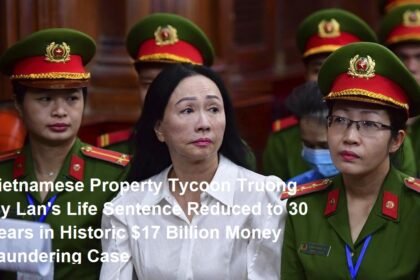On Sunday, May 4, 2025, North Korean Supreme Leader Kim Jong Un made a significant public statement urging the rapid modernization of the country’s military forces. This call came during his inspection of a key weapons manufacturing facility, underscoring Pyongyang’s ongoing commitment to strengthening its defense capabilities amid regional and global security challenges.
Context of the Announcement
Kim Jong Un’s visit to the weapons factory marks a continuation of North Korea’s long-standing focus on military development as a central pillar of its national policy. The regime has consistently prioritized advancing its arsenal, including nuclear weapons and ballistic missile technology, despite international sanctions and diplomatic pressures.
The timing of this announcement is notable, coming amid heightened tensions on the Korean Peninsula and increasing scrutiny from the international community regarding North Korea’s military activities.
Emphasis on Modernization and Self-Reliance
During the visit, Kim emphasized the importance of accelerating the modernization process to ensure that the Korean People’s Army remains capable of defending the nation against any external threats. He highlighted the need for indigenous development of advanced weaponry, reflecting North Korea’s policy of self-reliance, or “Juche.”
Kim’s remarks called for improvements in the quality, efficiency, and technological sophistication of military hardware, including conventional arms and strategic weapons systems.
Strategic Implications
The leader’s directive signals a potential intensification of North Korea’s military programs, which could include the development of new missile systems, enhanced nuclear capabilities, and upgraded conventional forces. This development is likely to raise concerns among neighboring countries such as South Korea, Japan, and the United States, which have been actively monitoring Pyongyang’s military advancements.
Experts suggest that North Korea’s push for modernization aims to strengthen its deterrence posture and bargaining power in any future diplomatic negotiations.
Domestic Messaging and Regime Stability
Kim Jong Un’s public call for military modernization also serves as a message to domestic audiences, reinforcing the regime’s commitment to national security and sovereignty. It aims to bolster internal support by showcasing progress in defense capabilities amid economic challenges and international isolation.
The visit to the weapons factory and the emphasis on military strength are consistent with North Korea’s narrative of resilience and preparedness.
International Reactions
The international community, including the United Nations and key stakeholders such as the United States, South Korea, and Japan, is expected to respond cautiously to Kim’s announcement. Previous military advancements by North Korea have often led to increased sanctions and diplomatic efforts to curb its weapons programs.
Analysts anticipate that this renewed focus on modernization may complicate ongoing efforts to engage North Korea in denuclearization talks and regional security dialogues.
In summary, North Korean leader Kim Jong Un’s call to accelerate military modernization during his visit to a weapons factory on May 4, 2025, underscores Pyongyang’s continued prioritization of defense capabilities amid complex geopolitical dynamics. The move highlights the regime’s focus on self-reliance, deterrence, and internal stability, while raising concerns among regional and global actors about future security implications.








